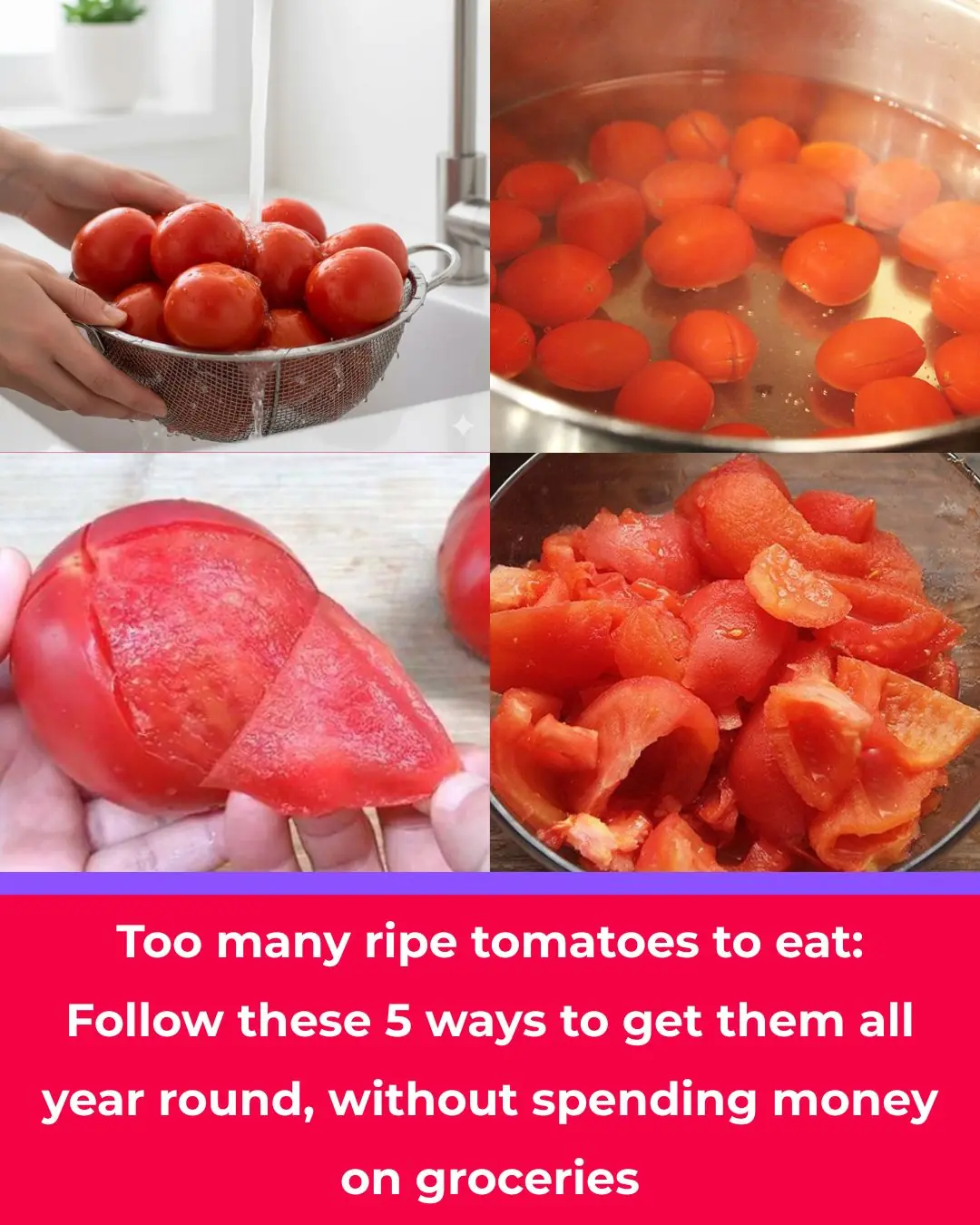
🍌 5 High-Fiber Foods That Naturally Support Digestion & Relieve Constipation
Your stomach feels heavy and full…
Yet nothing seems to be moving.
You’ve tried drinking more water.
You’ve taken long walks after meals.
You’ve waited — but relief still hasn’t come.
Constipation affects millions of people worldwide, and although an occasional slowdown is normal, ongoing digestive struggles can affect everything — your mood, your energy, your focus, and even your sleep.
The good news is this:
👉 You don’t need harsh laxatives, stimulants, or extreme cleanses to get your digestion back on track.
Nature provides gentle, nourishing foods that support your gut’s natural rhythm — foods rich in fiber, water, minerals, and plant compounds that help your colon work the way it was designed to.
Let’s explore 5 science-backed foods that encourage smooth, regular bowel movements, along with simple lifestyle habits that help you feel lighter, calmer, and more balanced from the inside out.
Because real wellness isn’t about urgency.
It’s about consistency — one nourishing choice at a time. 💚
🔍 What Really Causes Constipation?
Constipation is more than just “not going.” It typically means:
-
Fewer than three bowel movements per week
-
Hard, dry, or pebble-like stools
-
Straining or discomfort during bowel movements
Common underlying causes include:
✅ Low Fiber Intake
Without adequate fiber, stool lacks bulk — slowing movement through the colon.
✅ Dehydration
When you’re low on fluids, the colon draws extra water from stool, making it hard and difficult to pass.
✅ Sedentary Lifestyle
Movement stimulates the intestines. Long periods of sitting slow motility.
✅ Ignoring the Urge to Go
Holding it in repeatedly can weaken the body’s natural elimination reflexes.
✅ Medications
Painkillers, iron supplements, antidepressants, and certain antacids can all slow digestion.
🩺 Chronic, long-term constipation can also be linked to conditions like IBS, hypothyroidism, diabetes, or pelvic floor dysfunction — which may need medical care.
✅ 5 Foods That Gently Support Bowel Regularity
These are not “miracle cures.”
They’re whole foods that work naturally — and consistently — when you include them in a balanced diet.
1. Prunes (Dried Plums) — Nature’s Gold Standard
Prunes are one of the most studied natural remedies for constipation.
They contain:
-
Soluble & insoluble fiber (7g per ½ cup)
-
Sorbitol, a natural sugar alcohol that draws water into the intestines
-
Phenolic compounds that stimulate healthy gut motility
📌 Clinical studies show prunes improve stool frequency and softness better than fiber supplements alone.
How to use:
Eat 3–5 prunes daily, and drink plenty of water.
2. Kiwi — Small, Green, and Surprisingly Powerful
Two medium kiwis provide:
-
~4.5g fiber
-
Actinidin, an enzyme that supports digestion
-
Antioxidants and water to assist bowel movement
🔬 In multiple clinical trials, two kiwis per day significantly improved bowel regularity in people with chronic constipation.
🥄 Pro tip:
Eat kiwi with the skin (after washing) — it triples the fiber.
3. Chia Seeds — Tiny Seeds With Big Hydration Power
Chia seeds absorb up to 10x their weight in water, forming a gel-like texture that softens stool and promotes smooth movement through the colon.
They contain:
-
10g soluble fiber per ounce
-
Omega-3 fatty acids
-
Plant-based protein
💧 How to use:
Soak 1 tablespoon chia seeds in 1 cup of water or plant milk for 15–30 minutes before consuming.
🚫 Never eat dry chia seeds — they can clump in the throat or digestive tract.
4. Leafy Greens — Spinach, Kale, Swiss Chard & More
Leafy greens provide:
-
Fiber to bulk up stool
-
Magnesium, which relaxes intestinal muscles
-
Water for hydration
This combination makes them one of the most effective long-term foods for digestion.
🥗 Add them to:
-
Smoothies
-
Salads
-
Soups
-
Stir-fries
💡 Bonus:
Chlorophyll may support your body’s natural detox pathways — not a “cleanse,” but gentle support.
5. Apples & Pears — Simple, Effective, and Best With Skin On
One medium apple with the skin has 4.4g of fiber.
These fruits are rich in pectin, a soluble fiber that ferments in the colon and helps speed up transit time.
They’re also about 85% water, providing hydration with every bite.
🍎 Always eat them whole — juicing removes most of the gut-friendly fiber.
❗ For some people with IBS, apples and pears may cause bloating due to fructose/FODMAPs. Listen to your body.
✅ Lifestyle Habits That Make a Big Difference
Food works best when paired with smart, gentle habits:
💧 Drink 6–8 glasses of water daily
Keeps stool soft and prevents dehydration.
🚶♂️ Move every day
Walking stimulates peristalsis — the wave-like contractions that move stool.
🚽 Don’t ignore the urge to go
Train your body to recognize and respond to natural cues.
🪑 Use the right toilet posture
Feet on a small stool + leaning forward
→ straightens the rectum and makes elimination easier.
The Squatty Potty® and similar tools mimic a natural squatting position.
❌ Constipation Myths — Debunked
❌ “Olive oil works like a laxative.”
There’s no strong evidence. It may lubricate slightly but won’t fix constipation.
❌ “Coffee cures constipation.”
Caffeine stimulates the colon briefly, but it’s not reliable or long-term.
❌ “More fiber is always better.”
Too much fiber too quickly can worsen constipation — causing bloating and discomfort.
❌ “Everyone should eat prunes.”
Not true. Some people find them too stimulating.
🚨 When to See a Doctor
Seek medical advice if you experience:
-
Constipation lasting longer than 2 weeks
-
Blood in stool
-
Severe abdominal pain or bloating
-
Unexplained weight loss
-
History of bowel obstruction or diverticulitis
Food alone should not be used to manage serious symptoms.
Final Thoughts
You don’t need extreme cleanses, quick fixes, or harsh laxatives to feel better.
Your gut often responds best to simple, gentle, consistent nourishment — the kind that supports your body’s natural rhythm.
So the next time you’re feeling backed up…
pause.
Take a deep breath.
Grab a kiwi.
Soak some chia.
Walk for ten minutes.
Sip water slowly.
Because real digestion isn’t noisy — it’s quiet.
It thrives on small habits repeated daily.
And sometimes,
the shift you need begins with one mindful choice…
and one full glass of water.
News in the same category


The shower head is easily clogged after long use. This way, the dirt will drain away by itself and replace it with a new one

Boiling shrimp with a handful of these leaves makes the shrimp bright red, sweet meat, everyone praises it.

New Towels Feeling Sticky and Smelly? Soak Them in This to Make Them Clean

🧼 Here’s My Easy Way to Clean Oven Racks: Just One Bag & a Natural Soak

Crush a handful of these leaves and place them in the room.

Soaking vegetables in salt water is not as good as you think, if you want them clean, do it this way

Netizens compete to show off their secret tips for cleaning carved wooden tables and chairs to welcome Tet

Don't burn peach trees anymore: This is the way to help peach blossoms bloom, sprout, and still be brilliant after Tet

Add a drop of essential oil to an onion and no matter how many mosquitoes and insects it has, they will disappear

Shower Head Clogged After Long Use? Try This Method to Clean It Easily Without Spending Money

Why You Shouldn’t Wash Rice Inside the Electric Rice Cooker: A Common Mistake Many People Don’t Know

Add This Ingredient to Your Coffee: No More Yellow Teeth or Bad Breath

Don’t Eat Tofu Right Away After Buying It: Freezing It in the Fridge Has Amazing Benefits

Don’t Rush to Store Lemons in the Fridge — Do This Instead to Keep Them Fresh All Year Without Bitterness

Too Many Ripe Tomatoes? Try These 5 Preservation Methods to Enjoy Them All Year — Without Spending on Fresh Ones

The “Miracle” Termite Prevention Methods for Wooden Furniture

Don’t Clean a Dirty Rice Cooker with Plain Water: Use This Trick and It’ll Shine Like New in Just 5 Minutes

Insert Two Chopsticks into a Plastic Bottle: A Simple Life Hack Every Household Should Know
News Post

Kirsty Gallacher says brain tumour is 'growing very fast' in worrying health update

Strictly’s George Clarke supported after heartbreaking confession ahead of live show: ‘It’s hard’

Lola Petticrew was in ‘revolutionary’ drama Say Nothing before Trespasses – and it has an impressive Rotten Tomatoes score

The Lip Color You Pick Reveals What Kind of Woman You Are

EVERYTHING TOM FELTON HAS SAID ABOUT JK ROWLING CONTROVERSY AS HE RETURNS TO HARRY POTTER

Doctors reveal that eating guava causes...

Why Your Hard-Boiled Eggs Have That Weird Green Ring

Big Brother kicks out two stars in cutthroat move days before final

Don’t Toss That Tuna Can

Yeast & Coffee Erase All Wrinkles in 3 Minutes – Even at 70

KELLY BROOK ADMITS WHY SHE SPLIT UP FROM EX-FIANCÉ JASON STATHAM AFTER SEVEN-YEAR RELATIONSHIP

Glow Like Never Before: The Banana and Carrot Face Mask That Defies Aging 🌟

BBC Unveils Daytime Shake-Up with New Shows Fronted by Vernon Kay and Ronan Keating 📺

The shower head is easily clogged after long use. This way, the dirt will drain away by itself and replace it with a new one

🎭 Emmerdale 'Too Dark' Debate: Viewer Poll Reveals Audience is Sharply Divided

The shocking truth about vitamins and blood clots in your legs

BBC Orders Immediate Lockdown for Celebrity Race Across the World Contestants Due to Violent Guatemala Uprising

🔥 Gordon Ramsay Delivers "Brutal Swipe" at Weight-Loss Jab Users, Refusing to Alter Menus

MAFS UK fans spot telling clue Davide and Keye have split
